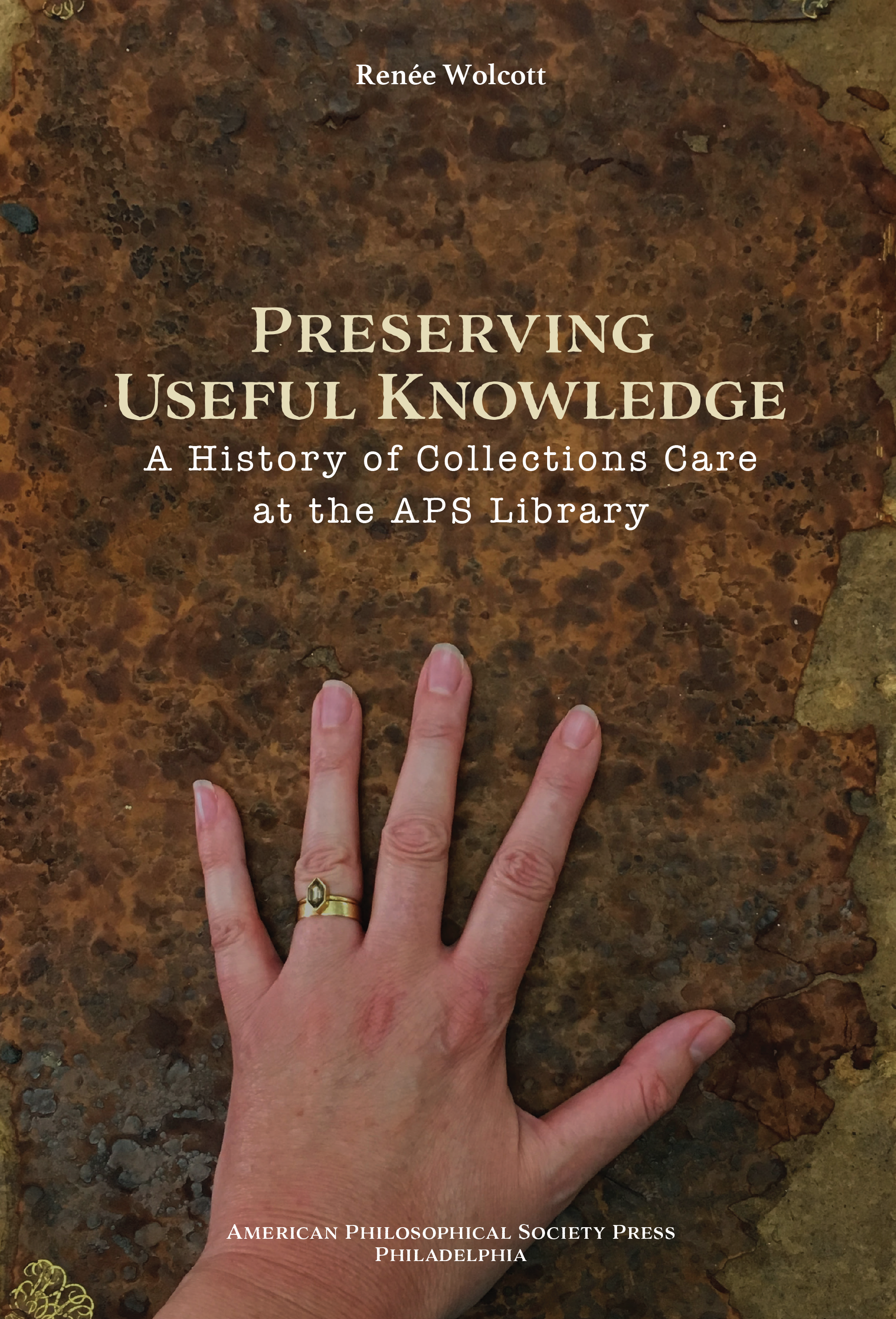Preserving Useful Knowledge: A History of Collections Care at the APS Library

This book traces the history of collections care at the American Philosophical Society as revealed through its minute books, treasurers’ receipts, and librarians’ correspondence. It also examines the physical evidence presented by books and documents that were repaired by former restorers and conservators, including Library of Congress manuscript restorer William Berwick, book and manuscript restorer Carol Rugh (later Carolyn Horton), and the Society’s first full-time conservator, Willman Spawn. Their painstaking repairs—using finely woven silk, translucent tracing cloth, and expertly cut historic papers—present both a vital historical record and an ongoing challenge for today’s conservators. Although these repairs were groundbreaking in their day, using materials and techniques that would have been unfamiliar to traditional binders, they haven’t always aged well. Many twentieth-century leathers fall into dust within decades; silk linings can become dark and brittle. When a previously restored book or manuscript requires additional conservation treatment, how should today’s professional conservators, equipped with more recent scientific knowledge, respectfully engage with these historic yet potentially damaging repairs?
The conservation of artworks and of library and archival materials is now a small but thriving academic field, with accredited master’s programs that equip graduates with both traditional hand skills and an understanding of the physical and chemical forces that cause artifacts to deteriorate or to survive. As the stewards of our shared cultural heritage, conservators are responsible for preserving the physical historical record. The Society’s long history of binding, rebinding, restoration, and re-treatment suggests that today’s conservators must also act as historians, documenting and preserving the historical evidence of their own field and its evolving preservation methods.
Renée Wolcott is Assistant Head of Conservation and Book Conservator at the American Philosophical Society, where she also examines the collections for evidence of past conservation and restoration practices. Prior to joining the APS, Wolcott served as book conservator at the Conservation Center for Art and Historic Artifacts in Philadelphia, editor of the Book and Paper Group Annual of the American Institute for Conservation, and adjunct professor in the Department of Art Conservation at the University of Delaware. In addition to her book conservation work for the APS, she has curated an exhibition entitled Conservation and the Peale-Sellers Family Collection and edited a volume of the Transactions of the American Philosophical Society on the same subject (Art, Science, Invention: Conservation and the Peale-Sellers Family).
